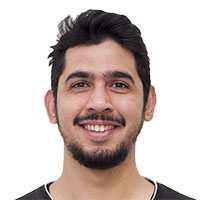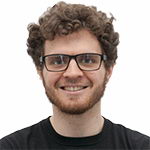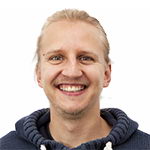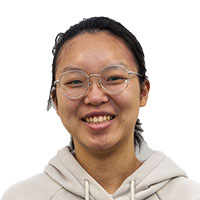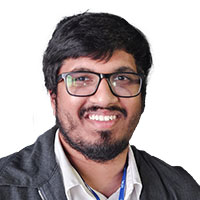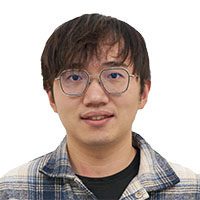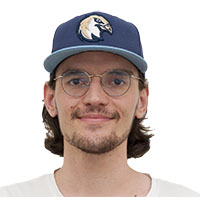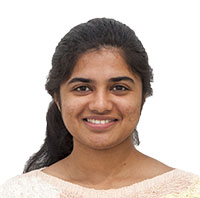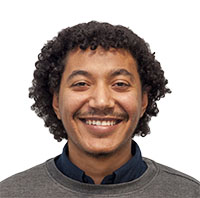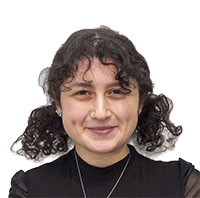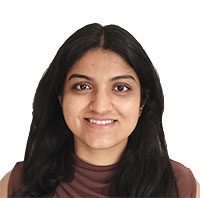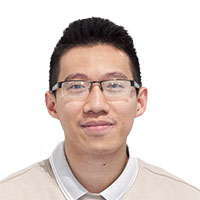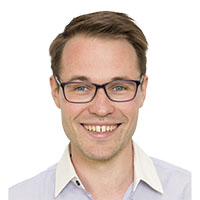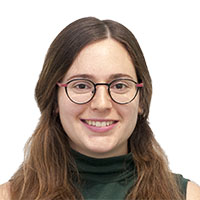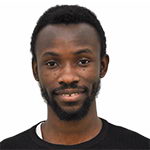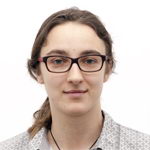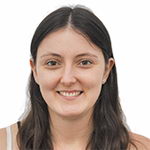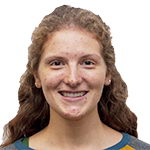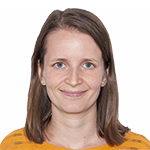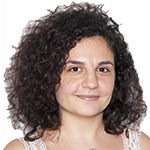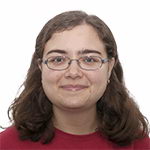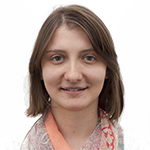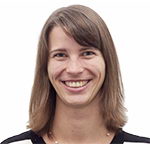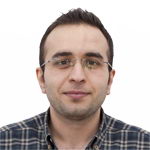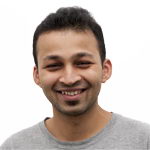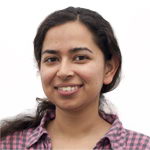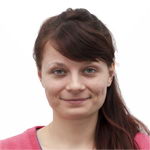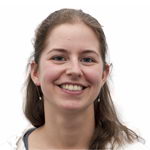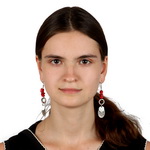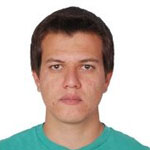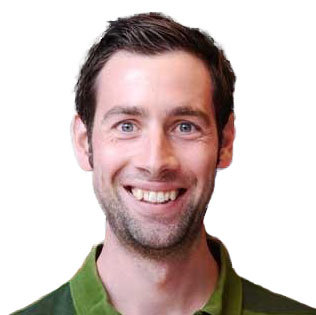Group Members
-
 Jilles VreekenProfessor
Jilles VreekenProfessor -
 Lénaïg CornanguerPost Doc
Lénaïg CornanguerPost Doc -
 Janis KalofoliasPost Doc
Janis KalofoliasPost Doc -
 David KaltenpothPost Doc
David KaltenpothPost Doc -
 Joscha CueppersPhD Student
Joscha CueppersPhD Student -
 Sarah MamechePhD Student
Sarah MamechePhD Student -
 Luis PaulusPhD Student
Luis PaulusPhD Student -
 Hendrik SuhrPhD Student
Hendrik SuhrPhD Student -
 Nils WalterPhD Student
Nils WalterPhD Student -
 Sascha XuPhD Student
Sascha XuPhD Student -
 Jawad Al RahwanjiMaster Student
Jawad Al RahwanjiMaster Student -
 Tim BauerschmidtMaster Student
Tim BauerschmidtMaster Student -
 Ben BliemBachelor Student
Ben BliemBachelor Student -
 Matthew ChuBachelor Student
Matthew ChuBachelor Student -
 Moritz DitterBachelor Student
Moritz DitterBachelor Student -
 Felix FalkenbergBachelor Student
Felix FalkenbergBachelor Student -
 Maya HilwaniMaster Student
Maya HilwaniMaster Student -
 Julius KampResearch Assistant
Julius KampResearch Assistant -
 Tim KruseResearch Assistant
Tim KruseResearch Assistant -
 Ferdinand KönnekerMaster Student
Ferdinand KönnekerMaster Student -
 Ghada Nait SaidMaster Student
Ghada Nait SaidMaster Student -
 Matthias WilmsMaster Student
Matthias WilmsMaster Student
Jilles is Faculty (W3) at the CISPA Helmholtz Center for Information Security, where he leads the Exploratory Data Analysis group. He is Honorary Professor of the Department of Computer Science of Saarland University, as well as ELLIS Fellow of the ELLIS Unit Saarbrücken on Artificial Intelligene and Machine Learning.
My research is mainly concerned with causality and unsupervised learning. In particular, I enjoy developing theory and algorithms for answering exploratory questions, such as 'what is going on in my data?' or 'what is going on in my model?' without having to make unnecessary or unjustified assumptions. To identify what is worth knowing, I often employ well-founded statistical methods based on information theory, and then proceed to develop efficient algorithms for extracting useful interpretable results. I like all data types equally much.
Currently I'm investigating techniques for identifying informative and ideally causal structures in large collections of complex data; how to efficiently mine easily interpretable summaries from data; how to determine and discover causal dependencies from observational data; the theoretical and practical foundations of interactive exploration of very large data, discovering things by serendipity; how to mine large relational databases; how to mine very large graphs, including characterising influence propagation in social networks; as well as to study well-founded approaches for meaningfully comparing between, and validation of, explorative results.
ELLIS Unit Saarbrücken
Saarland University
Im Oberem Werk 1, Room 0.01
66386 St. Ingbert, Germany
66123 Saarbrücken, Germany
Lénaïg Cornanguer is a post-doctoral researcher. Her main research interests are causal inference, discovery of temporal logic from observational data, and explainable anomaly detection.
Lénaïg pursued her PhD at IRISA in Rennes, obtaining her degree from the Université de Rennes 1 for her dissertation titled 'Timed Automata Learning from Time Series' in November 2023. Prior to that, she obtained her Master's of Science in Data Science from the Agrocampus Ouest Engineering School in Rennes, France.
Im Oberem Werk 1, Room 0.03
66386 St. Ingbert, Germany
66123 Saarbrücken, Germany
Janis Kalofolias is a post-doctoral researcher affiliated with the EDA group. His research interests include many things, ranging from optimistic estimators for subgroup discovery, kernel-based methods for measuring similarities between graphs, to information theoretic methods for subjectively interesting structure from complex data.
Janis obtained his Bachelor of Science in 2011 from the University of Patras, Greece. In 2012 he joined Saarland University to pursue a Master of Science in Computer Science, and was a Research Assistant at the Max Planck Institute for Informatics. He joined the EDA group as a PhD student in November 2016, and defended his dissertation titled 'Subgroup Discovery for Structure Targets' on December 8th 2022. He subsequently was a Postdoc in the group until June 2024.
Im Oberem Werk 1
66386 St. Ingbert, Germany
66123 Saarbrücken, Germany
David Kaltenpoth is a postdoc who works on causal inference under realistic conditions, such as confounding, selection bias, or non-i.i.d. data.
David obtained his Ph.D. in Computer Science from Saarland University on November 25th, 2024. His thesis, 'Don't Confound Yourself: Causality from Biased Data,' was awarded the Helmholtz AI Dissertation Award 2024.
David obtained his Master of Science in Mathematics from the Ludwigs-Maximilian Universität München in 2016. He joined the EDA group in June 2016 for a Research Immersion lab, stayed for his Ph.D., and is now a postdoc.
Im Oberem Werk 1, Room 0.03
66386 St. Ingbert, Germany
66123 Saarbrücken, Germany
Joscha Cüppers is a PhD student who is working on novel methods for mining patterns from data. He is particularly interested in developing methods for discovering interactions and abstractions from sequential data.
Joscha obtained his Bachelor of Science in Computer Science in 2016 from Ulm University and his Master of Science from Saarland University in 2019. He joined the EDA group in 2019 to write his Master's thesis and started his PhD with us in 2020.
Saarland University
Im Oberem Werk 1, Room 0.02
66386 St. Ingbert, Germany
66123 Saarbrücken, Germany
Sarah Mameche is a PhD student who is interested in exploratory causal analysis, such as discovering of invariant causal mechanisms from data.
Sarah did both her Bachelor's and Master's degree in Computer Science at Saarland University. She joined the EDA group in 2020 to write her Master's thesis with us on the topic of discovering invariant causal mechanisms between different environments, such as between the populations analyzed by different hospitals.
Saarland University
Im Oberem Werk 1, Room 0.03
66386 St. Ingbert, Germany
66123 Saarbrücken, Germany
Luis Paulus will join us as a PhD student from September 1st.
Luis obtained both his Master's and Bachelor's in Computer Science from Saarland University. He wrote his Master's thesis on how to efficiently discover high-quality rule sets from massive binary datasets using continuous optimization, and his Bachelor's thesis on reinforcement curriculum learning. He was a tutor for Programming 1 and the Math Preparatory Course, part of the CS Bachelor Honor's Program, did an Erasmus semester in Bergen, Norway, and likes rowing.
Saarland University
Im Oberem Werk 1, Room 0.02
66386 St. Ingbert, Germany
66123 Saarbrücken, Germany
Hendrik will join us as a PhD student from March 1st. Hendrik is a PhD student interested in exploratory data analysis in general, be it pattern mining, anomaly detection, and/or causal analysis.
Hendrik obtained his Master's in Computer Science and his Bachelor's in Mathematics and Computer Science from Saarland University. He wrote his Master's thesis on how to detect and characterize rare exceptions in data. He was a student assistant at the Saarland University Competence Center, worked at retailSolutions, and likes traveling and playing football.
Saarland University
Im Oberem Werk 1, Room 0.02
66386 St. Ingbert, Germany
66123 Saarbrücken, Germany
I am a Ph.D. student at CISPA Helmholtz Center for Information Security, supervised by Jilles Vreeken. I am broadly interested in robust and explainable machine learning for large-scale real-world applications. In my Ph.D, I intend to develop new approaches that are at the same time descriptive and predictive. That is the models not only offer predictive capabilities but also facilitate practitioners to gain deeper insights into the problems they are addressing.
I obtained my Bachelor's and Master's degrees in Computer Science from Saarland University. Before joining CISPA, I was a research assistant in the goup of Bernt Schiele at the Max-Planck-Institut for Informatics, supervised by David Stutz . My research focused on adversarial and out-of-distribution robustness of Quantized Neural Networks. I also worked on the influence of Batch Normalization on the vulnerability and generalization capabilities of neural networks.
Saarland University
Im Oberem Werk 1, Room 0.02
66386 St. Ingbert, Germany
66123 Saarbrücken, Germany
Sascha Xiaguang Xu is a Ph.D. student who works on the intercept between causality and explainability.
Sascha obtained his Bachelor's and Master's degrees from Saarland University, respectively in 2019 and 2022. During this time he worked with us a student research assistant on the topic of bivariate causal inference in the presence of heteroscedastic noise, which led to an ICML paper in 2022.
Saarland University
Im Oberem Werk 1, Room 0.02
66386 St. Ingbert, Germany
66123 Saarbrücken, Germany
Jawad Al Rahwanji is pursuing a Master of Science in Data Science and Artificial Intelligence at Saarland University. He is currently working on his Master's thesis on differentiable subgroup discovery in time-to-event (survival) data.
Jawad obtained his Bachelor of Engineering in Information Technology Engineering in 2021 from Damascus University, specializing in artificial intelligence. For his graduation project, he worked on a computer vision-powered system that detects security- and safety-related events.
Im Oberem Werk 1, Room 0.14
66386 St. Ingbert, Germany
66123 Saarbrücken, Germany
Tim is a student at the Saarbrücken Graduate School for Computer Science. He is very broadly interested in all aspects of machine learning, soaking up as much knowledge as possible.
He obtained his Bachelor's degree from Saarland University in 2023 for his thesis 'What makes you say that? Explaining Transformers using Rule Mining and Input Prototyping' in which he showed how we can explain the decisions of transformer networks through pattern mining.
One of his passions outside of studying is tutoring. Tim was a tutor for Programming 1, Programming 2, and the Machine Learning core lecture.
Saarland University
Im Oberem Werk 1
66386 St. Ingbert, Germany
66123 Saarbrücken, Germany
Ben – or, if you want to be formal, Benedict – is pursuing his Bachelor of Science degree in Data Science and AI at Saarland University. He is currently writing his Bachelor's thesis with us on the topic of multi-modal subgroup discovery.
Im Oberem Werk 1, Room 0.14
66386 St. Ingbert, Germany
66123 Saarbrücken, Germany
Matthew is pursuing his Bachelor of Science degree in Data Science and AI at Saarland University. He is currently writing his Bachelor's thesis with us on a topic related to causality.
Im Oberem Werk 1, Room 0.14
66386 St. Ingbert, Germany
66123 Saarbrücken, Germany
Moritz is pursuing his Bachelor of Science in Data Science and AI at Saarland University. He is currently writing his Bachelor's thesis on the topic of causal anomaly detection and explanation.
Im Oberem Werk 1, Room 0.14
66386 St. Ingbert, Germany
66123 Saarbrücken, Germany
Felix Falkenberg is pursuing a Bachelor's in Computer Science at Saarland University. His research interests revolve around different aspects of explainable machine learning. He is currently writing his Bachelor's thesis with us on the topic of detecting adversarial samples based on the internal state of a deep neural network. In addition, he is a Student Research Assistant working on developing methods to derive insights into what a deep neural network has learned.
Im Oberem Werk 1, Room 0.14
66386 St. Ingbert, Germany
66123 Saarbrücken, Germany
Maya Hilwani is pursuing a Master of Science in Informatics at Saarland University. She is currently writing her Master’s thesis on the topic of causal clustering, meaning, how to use knowledge about the causal structure for identifying clusters in the data caused by different causal mechanisms.
Im Oberem Werk 1
66386 St. Ingbert, Germany
66123 Saarbrücken, Germany
Julius is pursuing his Master of Science in Data Science and AI at Saarland University. He is currently a Research Assistant with us, investigating to which extent LLMs understand causality.
Julius obtained his Bachelor's degree in Data Science and AI from Saarland University. He wrote his thesis on accurately learning fully oriented causal models from discrete data.
Im Oberem Werk 1, Room 0.03
66386 St. Ingbert, Germany
66123 Saarbrücken, Germany
Tim is pursuing his Master of Science in Data Science and AI at Saarland University. He is currently a Research Assistant with us, working on the topic of mechanistic interpretability.
Tim obtained his Bachelor's in Data Science and AI from Saarland University. He wrote his thesis on how to discover and characterize anomalies identified by deep vision models.
Im Oberem Werk 1, Room 0.14
66386 St. Ingbert, Germany
66123 Saarbrücken, Germany
Ferdinand is pursuing a Master's of Science in Computer Science at Saarland University. He is currently working on his Master's thesis.
Im Oberem Werk 1, Room 0.14
66386 St. Ingbert, Germany
66123 Saarbrücken, Germany
Ghada is pursuing a Master's of Science in Data Science and AI at Saarland University. She is currently working on her Master's thesis on continuous-optimization-based approaches for mechanistic interpretability
Im Oberem Werk 1, Room 0.14
66386 St. Ingbert, Germany
66123 Saarbrücken, Germany
Matthias Wilms is pursuing a Master of Science in Informatics at Saarland University. He is currently writing his Master's thesis, which is on the topic of targeted subgroup discovery. That is, he studies the question of how to explain phenomena identified by a domain expert in the distribution of a target variable in terms of observed variables.
Matthias obtained his Bachelor of Science in Informatics from Saarland University in 2022. He wrote his Bachelor Thesis with us on the topic of efficiently discovering top-k Markov blankets from data.
Im Oberem Werk 1, Room 0.14
66386 St. Ingbert, Germany
66123 Saarbrücken, Germany
